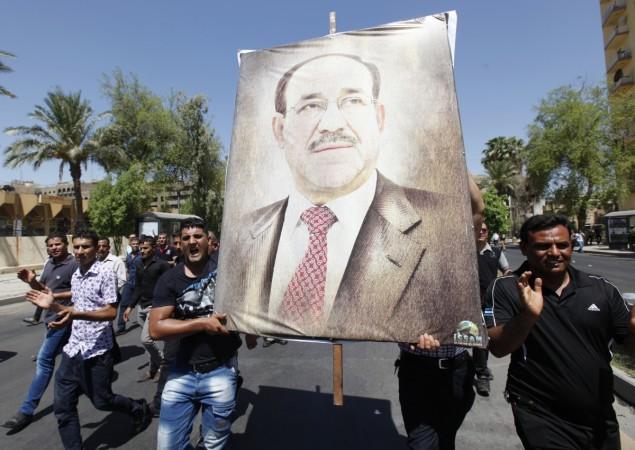
This must be one of the few things that US and Iran agree upon. The uneasy allies have their backing for the new Iraqi prime minister, leaving Nouri al-Maliki with little choice but to ultimately yield to the growing pressure, although he has refused to step aside after eight years of rule that has alienated Iraq's once dominant Sunni minority much to the chagrin of Washington and Tehran.
Haider al-Abadi won the backing of Tehran on Tuesday, less than 24 hours after US President Barack Obama called his appointment "a promising step forward".
While the development has given some hope of peace in the region that has descended into sectarian and ethnic bloodletting over the past few months, that the US and Iran were backing Abadi has come as a blow to Maliki, who currently remains adamant about occupying his seat.
Obama has said that Maliki must step down in order to allow a unification of Iraq so the country can better deal with jihadists, Islamic State, who have led a bloody campaign over the months overrunning major swathe of the country's north and west.
This comes after Maliki, earlier this week, raised fears of a political showdown and a coup by amassing security forces into the streets of Baghdad and dispatching them to guard his residential area.
But Maliki's defiance appeared to ease on Tuesday and Wednesday as he looked increasingly helpless with even Shi'ite militia and army commander long loyal to him signalling their backing for the change just like many civilians in the streets of Baghdad.
Sunni neighbours Turkey and Saudi Arabia also welcomed Abadi's appointment as the new prime minister, Reuters reports.
This came as the fight with the jihadists has intensified in the north with the US reportedly starting to directly supply arms to Kurdish Peshmerga fighters to help them battle the Islamic State militants.
The action could trigger debate on the changing policies of the United States as the Obama administration had previously insisted on selling arms only to the Iraqi government and had said they would not arm any group directly.
Maliki is seeking a third term, but has been increasingly facing criticisms and calls to step down as he has been implicated in stoking the current crisis in the country.
But on Monday, Iraq's President asked Abadi to form a new government, snubbing the incumbent PM Maliki whose view that the President's action was a "violation of the constitution" fell on deaf ears as the US President was quick to offer his congratulations on the decision.














